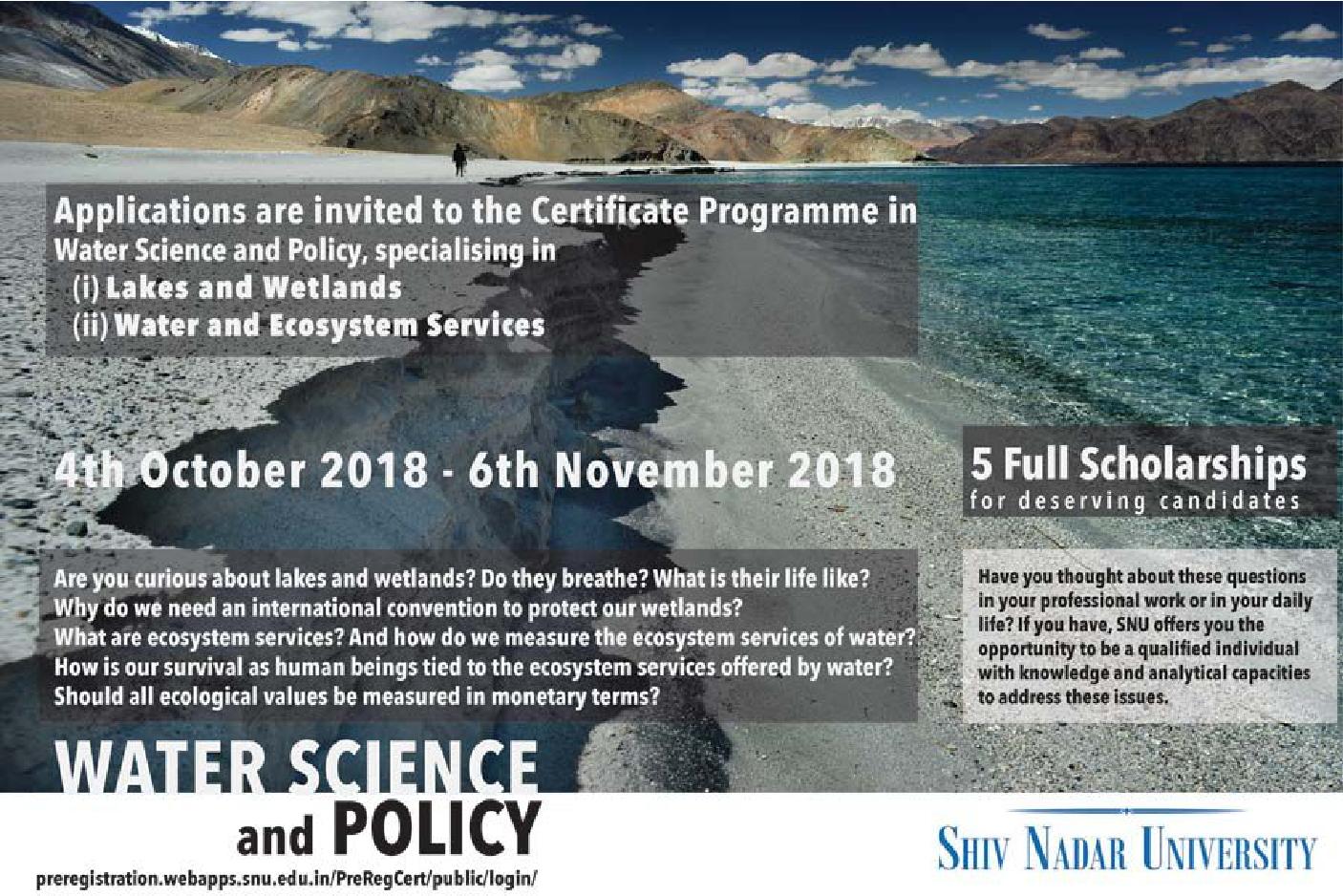/regions/india
India
State of drinking water supply schemes in Rajasthan
Posted on 11 Oct, 2018 11:24 AMOn March 16, 2017, the Comptroller and Auditor General (CAG) of India began a performance audit of the National Rural Drinking Water Programme (NRDWP) by discussing with the Ministry of Drinking Water and Sanitation the scope and methodology of the performance audit. Records relating to the implementation of the programme in 27 states for the five-year period (2012 to 2017) were examined.

India's first soil moisture map out
Posted on 10 Oct, 2018 11:37 AMIndia gets its first soil moisture map developed using hydrological model

Global warming impacts on India to be huge
Posted on 09 Oct, 2018 04:25 PMThe latest report of the UN’s Intergovernmental Panel on Climate Change (IPCC), formally released on Monday, warns that global warming is occurring faster than anticipated and that it can have devastating impacts if steps are not taken to cut down emissions.

Swachh Bharat Mission: It’s all about numbers
Posted on 02 Oct, 2018 11:06 PMWe have just a year to go for Swachh Bharat Mission’s (SBM) deadline of making India open-defecation free (ODF). In the last four years, the government has built 86.08 million toilets (as on September 26, 2018) throughout the country as a part of this flagship programme on providing safe sanitation to all by October 2019.

Glacial lake keeps disaster managers on toes in Sikkim
Posted on 02 Oct, 2018 12:30 PMDisasters managers and scientists in Sikkim are keeping a close watch on a lake formed due to the melting of glaciers to see how successful is an experiment they began two years back to siphon off excess water from the lake to prevent it from bursting.

Lower Demwe hydel project gets nod from wildlife board
Posted on 02 Oct, 2018 12:11 PMWildlife Board clears Lower Demwe hydel project despite flaws in report

Wetlands disappearing three times faster than forests
Posted on 02 Oct, 2018 11:43 AMWorld is losing the wetlands at a rate of 0.78 percent a year: Ramsar Convention

Training of Trainers foundation course on government schemes for farmers
Posted on 02 Oct, 2018 02:25 AMPJRB-SPARC has compiled an extensive database of Central Government and Punjab State Government schemes for agriculture and agriculturists. In this ToT, an overview will be shared about these schemes and how to enable farmers to avail of their benefits.
The following are attached for your reference:

